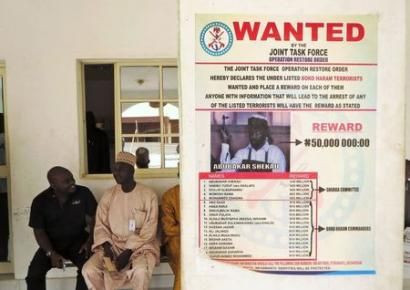Nigeria Boko Haram Attack Causes Over 15,000 To Flee

(Reuters) - More than 15,000 people have fled an area around the northeast Nigerian town of Damboa after a spate of lethal assaults by Islamist Boko Haram fighters during the weekend, the emergency services said Monday.
Suspected Islamists raided Damboa Friday and Saturday, killing more than 40 residents and burning houses, part of a pattern of killing that has forced tens of thousands to flee this year. They also attacked six nearby villages.
Boko Haram, which is fighting for an Islamic state in Nigeria, has ceaselessly targeted civilians this year in rural parts of Borno state where its fighters fled after a military offensive dislodged them from the cities.
Abdulkair Ibrahim, a spokesman for the National Emergency Management Agency in Borno, said the agency had records of 15,204 people who had fled Damboa and the six villages -- Kimba, Madaragrau, Mandafuma, Chikwar Kir, Bomburatai and Sabon Kwatta.
Addressing press in the capital Abuja on Monday, Defense spokesman Maj.-Gen. Chris Olukolade appeared to deny that Boko Haram had taken over Damboa and the surrounding areas when asked about reports that the military had fled and the insurgents had hoisted their black flags in the town.
"We are not conceding any portion of this country to any terrorist group," he said. "Our patrols are active and they are stepping up their activities to reverse any insecurity there."
Whether or not Boko Haram controls significant territory, its ability to strike with impunity is destabilizing Africa's biggest economy and making it an unattractive investment destination. Around 200 school girls kidnapped by the rebels in April remain in captivity, despite a vocal campaign calling on President Goodluck Jonathan's forces to rescue them.
A military operation in the northeast last year initially succeeded in breaking up a de facto area in the northeast that had been controlled by Boko Haram.
But the rebels melted away into the hilly border area near Cameroon. From there they have launched deadly reprisal attacks that are increasingly targeting civilians, after they formed vigilante groups to help the government kick out the militants.
Several bombs across the country since April, including three in Abuja and one in the commercial capital Lagos, in the southwest, have shown they can now bring their insurgency to any part of Africa's top oil producer.
© Copyright IBTimes 2025. All rights reserved.





















